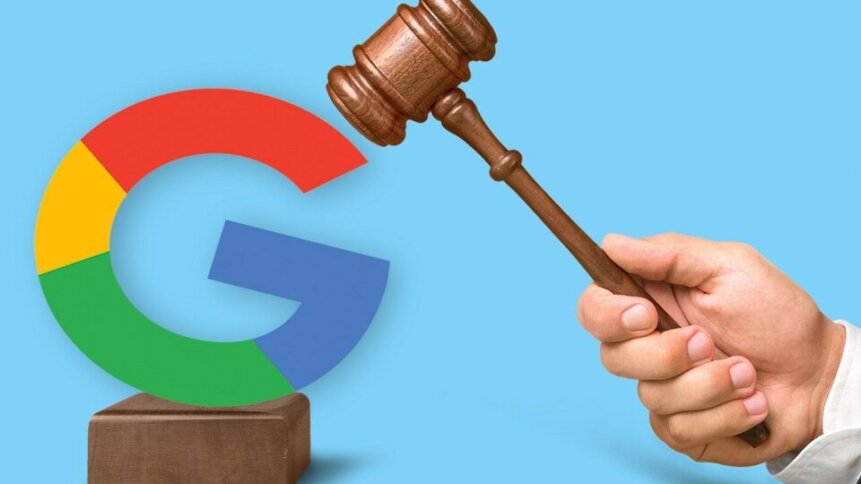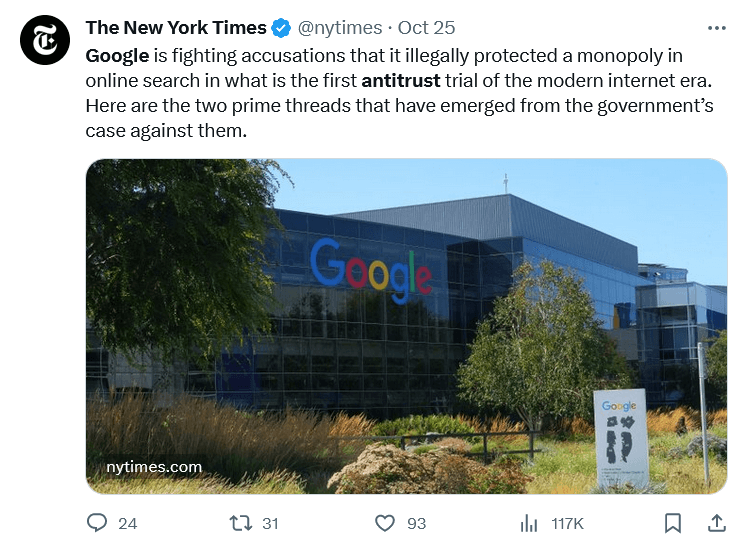
|
Getting your Trinity Audio player ready...
|
• A new Google antitrust investigation has been launched in Japan.
• That’s in addition to the ongoing investigation in the US.
• Is the sea changing around the search engine supergiant?
The Japanese Fair Trade Commission has launched a Google antitrust case, following the example of the US government.
In the US, the case against Google has reached the stage of court proceedings, after an antitrust suit was filed in 2020. The focus is the web of contracts that makes Google the default search engine on millions of browsers and devices worldwide.
Now, to compound the scrutiny of the internet leader’s business practices across the globe, Japan’s antitrust watchdog has begun an investigation into whether Google abuses its market position.
The Japanese Commission probe centers on allegations of potential antitrust violations, planning to solicit information and views on the matter from the public. The agency plans to examine whether Google inappropriately asked smartphone makers to prioritize its search service on their devices.
Is Google really your friend?
It’s also investigating whether Google made agreements with Android smartphone makers to share search ad-related revenue on the condition that the device manufacturer does not install a rival search engine.
The Japanese investigation marks the first time the Commission has consulted with third parties; the probe could widen to include Android phonemakers found to be complicit in antitrust activity, according to an official who didn’t elaborate further.

Could the US and Japan start a Google antirust tsunami?
In response, Google said Android is an “open-source platform that has enabled a diversity” in partners and device manufacturers.
“Its openness and flexibility ensure that users always have a choice to customize their devices to suit their needs, including the way they browse and search the internet, or download apps,” a Google spokesperson told CNBC via email on Monday.
Over in the US, Google CEO Sundar Pichai is testifying, trying to justify Google paying Apple more than roughly $10 billion a year to be the default on Apple devices and software.

Google CEO Sundar Pichai defends search deal with Apple in landmark antitrust trial.
Federal regulators have accused Google of abusing its position of dominance to block startups and larger rivals like Microsoft. High-profile executives including Microsoft’s chief executive officer Satya Nadella and top Apple dealmaker Eddy Cue have also taken the stand in that trial, which isn’t expected to yield an outcome till next year.
Google said it worked with governments, including in Japan, to support the Android mobile software ecosystem, and would continue to do so.
As revealed in the US trial, Google pays more money to Apple in search-default payments than it pays to any Android handsetmaker for search distribution.
To trust or antitrust – that is the question for Google
Although the suit is the biggest legal challenge to the power and influence of big tech in decades, it isn’t the first challenge Google has faced in recent years. In June of 2017, the European Commission fined Google €2.42 billion for breaching EU antitrust rules. This sum was reduced last year after Google appealed.
That time, the argument was that Google had abused its market dominance as a search engine by giving an illegal advantage to another Google product, its comparison shopping service.
It’s hard to imagine a world in which Google fails – as Judge Amit P Mehta, handling the case in the US, has said, “the brand name has become so ubiquitous that dictionaries recognize it as a verb.”
As its survival of past lawsuits has shown, as well as the revelation of its spending, Google has the money to weather this storm. However, Japan joining the US in investigating the monolithic presence indicates a sea change in attitudes towards Google across the globe.











